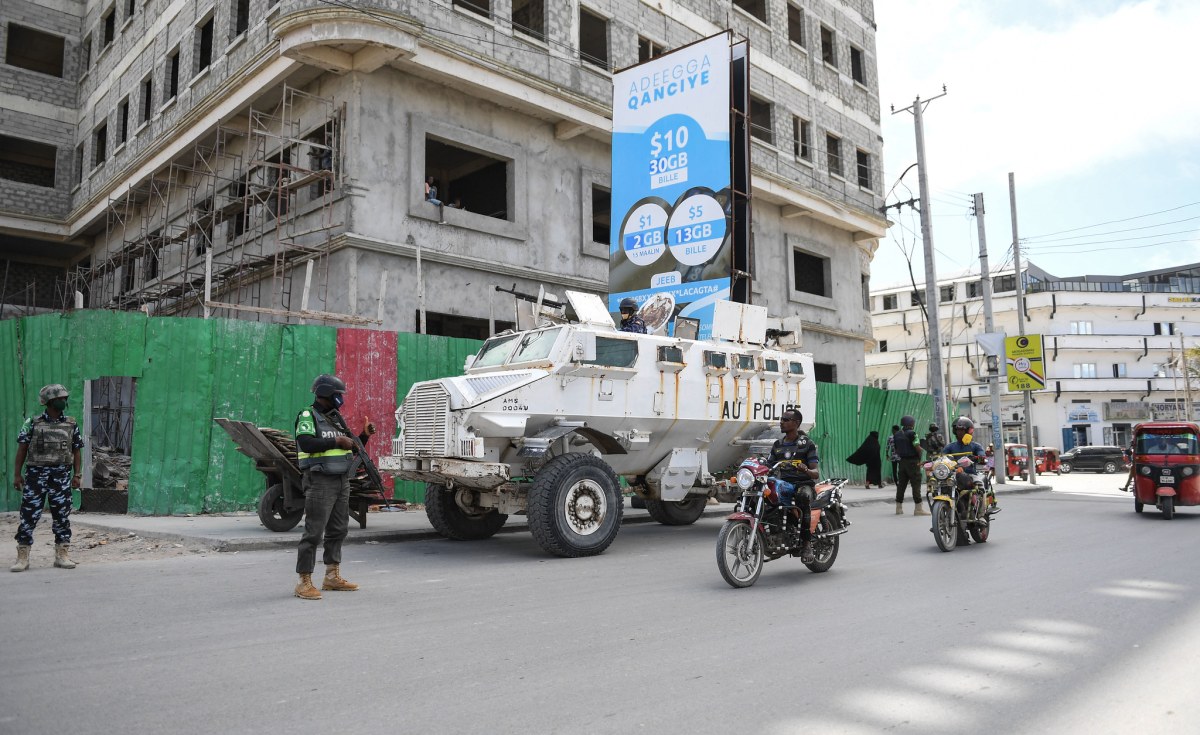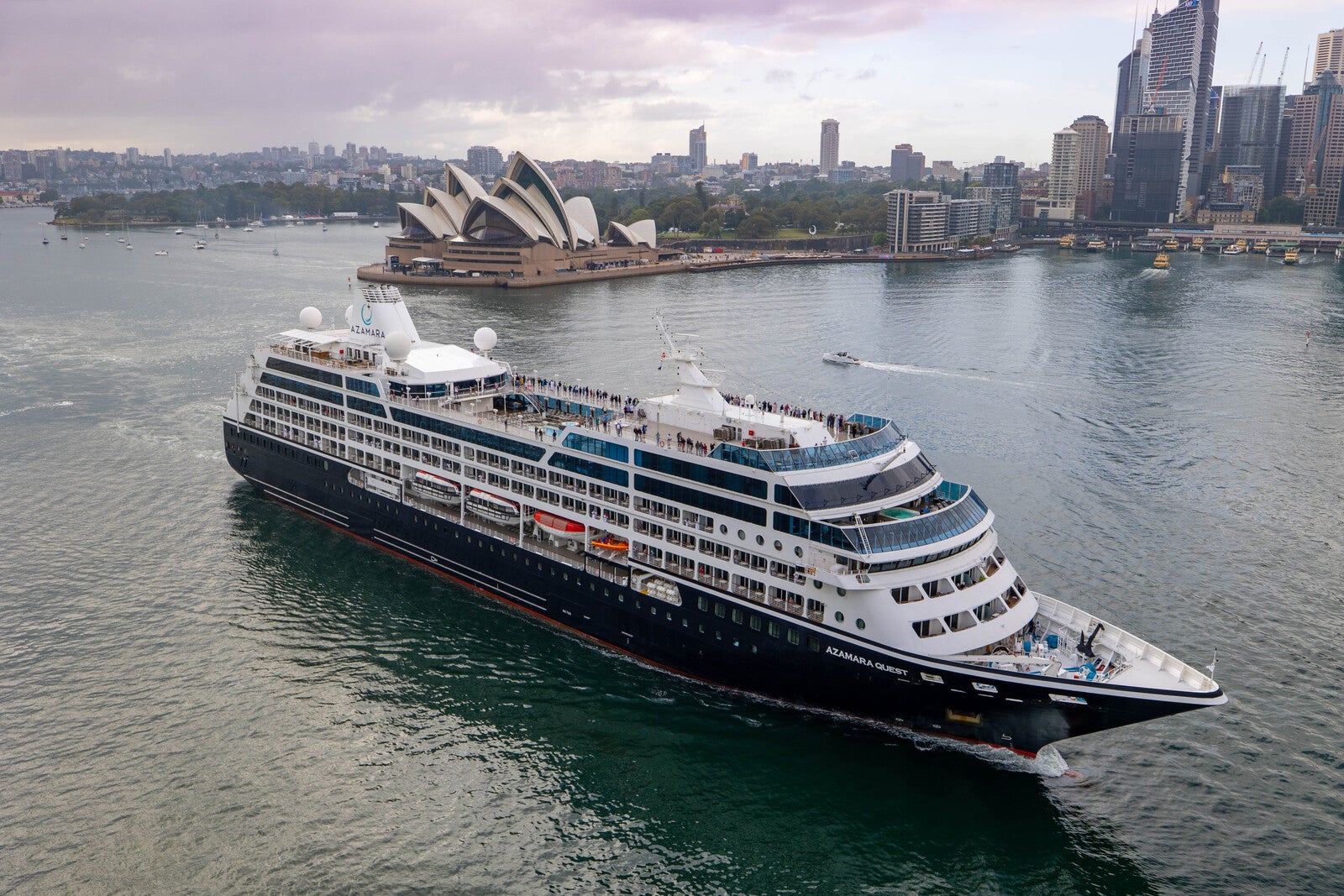Niger Prime Minister Ouhoumoudou Mahamadou speaks with the press outside the Niger Embassy, in Paris on August 5, 2023, days after coup plotters ousted Niger President, Mohamed Bazoum, holding him with his family in his official Niamey residence since July 26. Photo by STEFANO RELLANDINI / AFP via Getty Images
Pressure on Niger’s coup leaders mounted Sunday with the approach of the deadline set by the West African regional bloc ECOWAS for the military to relinquish control or face possible armed intervention.
Former colonial power France, with which the junta broke military ties after taking power on July 26, said it would “firmly” back whatever course of action ECOWAS took after the Sunday deadline expired.
“The future of Niger and the stability of the entire region are at stake,” the office of French Foreign Minister Catherine Colonna said after she held talks in Paris with Niger’s prime minister, Ouhoumoudou Mahamadou.
ECOWAS military chiefs of staff have agreed on a plan for a possible intervention to respond to the crisis, the latest of several coups to hit Africa’s Sahel region since 2020.
“We want diplomacy to work, and we want this message clearly transmitted to them (the junta) that we are giving them every opportunity to reverse what they have done,” ECOWAS commissioner Abdel-Fatau Musah said on Friday.
But he warned that “all the elements that will go into any eventual intervention have been worked out”, including how and when force would be deployed.
Niger has played a key part in Western strategies to combat jihadist insurgencies that have plagued the Sahel since 2012, with France and the United States stationing around 1,500 and 1,000 troops in the country, respectively.
Yet anti-French sentiment in the region is on the rise, while Russian activity, often through the Wagner mercenary group, has grown. Moscow has warned against armed intervention from outside Niger.
‘Error of judgement’
The coup “is an error of judgement that goes totally against the interests of the country”, French Armed Forces Minister Sebastien Lecornu told AFP in an interview Saturday.
“This putsch will weaken the fight against terrorism in the Sahel, where activity by armed terrorist groups is resurging, notably taking advantage of certain failed states like Mali,” he said.
Niger, one of the poorest countries in the world, relies heavily on foreign aid that could be pulled if President Mohamed Bazoum is not reinstated as head of state, he added.
The junta has said it will meet force with force.
Algerian President Abdelmadjid Tebboune spoke out against any military intervention in neighbouring Niger.
“We categorically refuse any military intervention,” he said in a television interview Saturday evening, adding that such action would be “a direct threat to Algeria”.
He stressed “there will be no solution without us (Algeria). We are the first people affected”.
“Algeria shares nearly a thousand kilometres” of border with Niger, he said.
“What is the situation today in countries that have experienced military intervention?,” he said, pointing to Libya and Syria.
Mali and Burkina Faso, where military juntas have taken power since 2020, have also said that any regional intervention would be tantamount to a “declaration of war” against them.
Bazoum, 63, has been held by the coup plotters with his family in his official Niamey residence since July 26.
In a column in The Washington Post on Thursday — his first lengthy statement since his detention — Bazoum said a successful putsch would “have devastating consequences for our country, our region and the entire world”.
Bazoum, who in 2021 won an election that ushered in Niger’s first-ever transfer of power from one civilian government to another, urged “the US government and the entire international community to help us restore our constitutional order”.
Opposition in Nigeria
Nigeria has cut electricity supplies to its neighbour Niger, raising fears for the humanitarian situation, while Niamey has closed the vast Sahel country’s borders, complicating food deliveries.
Senior Nigerian politicians have urged President Bola Tinubu to reconsider the threatened military intervention.
“The Senate calls on the President of the Federal Republic of Nigeria as chairman of ECOWAS to further encourage other leaders of ECOWAS to strengthen the political and diplomatic options,” Senate president Godswill Akpabio said.
Senators from northern Nigerian states, seven of which share a combined border of roughly 1,500 kilometres (900 miles) with Niger, have already advised against any intervention until all other options had been exhausted.
Tinubu himself on Thursday urged ECOWAS to do “whatever it takes” to achieve an “amicable resolution” of the crisis in Niger.
– Afp





















Discussion about this post